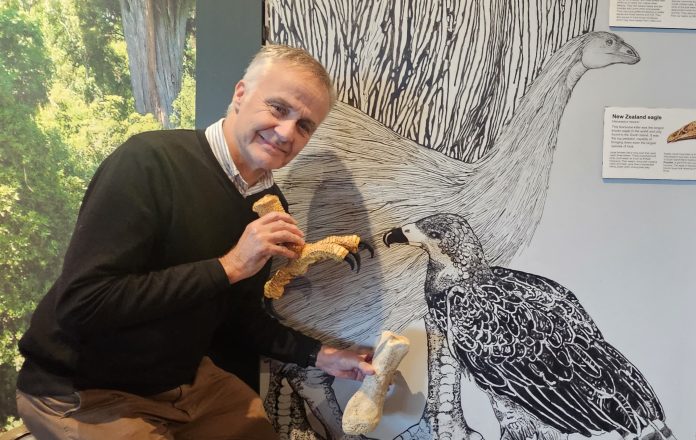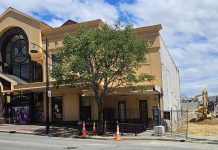
Just how dangerous was going for a simple bush walk in South Canterbury thousands of years ago?
To mark International Biodiversity Day, South Canterbury Museum director Philip Howe will be answering that question and much more.
On May 22 at 7pm he will be presenting an illustrated talk and tour of museum exhibits focused on how South Canterbury’s ecosystems have changed over the last 10,000 years.
The event would also feature specimens and replicas of items such as a giant moa egg and an extinct New Zealand eagle foot, he said.
‘‘10,000 years ago New Zealand was coming out of the last ice age.
‘‘Locally the coastline was further out than today, but slowly crept back in, drowning the lower coastal plains forest and shrubland.
‘‘Evidence such as the moa footprints found at Pareora Beach in 2022 by Chris Sargent, or exposed forest tree stumps on local beaches, indicate the climatic changes that occurred.’’
South Canterbury had one of the most biodiverse ecosystems in New Zealand.
‘‘It was home to a wide range of creatures that have either become extinct or disappeared from this part of the country.
‘‘These included six of the nine species of moa known form New Zealand, the extinct pouākai/New Zealand eagle, which was the world’s largest, and a range of flightless birds ranging in size from the large adzebill to tiny wrens that scuttled around on the forest floor like mice.
‘‘Tuatara lived in our forests, probably sharing burrows with marine birds such as petrels that nested in coastal forest areas.
‘‘There were two kiwi species present, kākāpō, kōkako, tīeke, kākāriki, tākahe and many other birds now only found in sanctuaries and remote parts of the country.’’
Over the last 1000 years, two very different waves of human settlement changed our ecosystem completely, ‘‘yet small pockets of forest and subfossil remains remind us of what was here’’.
The talk is being given as a fundraiser for the South Canterbury Museum Development Trust which is raising funds for developing exhibitions in the planned new museum.
Spaces for the talk are limited and booking is required.
Contact the museum on 687 7212, or email [email protected] for more information about booking.
Tickets will cost $10 for adults and $5 for children.




